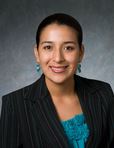Food Banking and Hunger in the United States
 [We’re pleased to welcome Michael Elmes of Worcester Polytechnic Institute. Professor Elmes published an article entitled “Food Banking, Ethical Sensemaking, and Social Innovation in an Era of Growing Hunger in the United States” with Karla Mendoza-Abarca and Robert Hersh in the Journal of Management Inquiry.]
[We’re pleased to welcome Michael Elmes of Worcester Polytechnic Institute. Professor Elmes published an article entitled “Food Banking, Ethical Sensemaking, and Social Innovation in an Era of Growing Hunger in the United States” with Karla Mendoza-Abarca and Robert Hersh in the Journal of Management Inquiry.]
- What inspired you to be interested in this topic?
For the past 10 years I have been very interested in food, and more recently hunger. Through my involvement with the Sustainable Food Systems Center at WPI founded by Bob Hersh (one of the authors of our paper), I became more interested in causes of hunger and the role that food banks are playing in trying to mitigate hunger. This led me to the area of food justice and how some food banks, including the Worcester County Food Bank, have started to experiment with food justice practices or social innovations, including mobile farmers markets to serve low income communities, partnerships with local farms, and engagement in educational activities, especially with inner city youth. The fact that hunger and food insecurity is an enormous and growing problem in the US is a shock to many people and is partly what motivated us to write the paper; that these experiments are happening in Worcester County and across the world is inspiring.
- Were there findings that were surprising to you?
It was surprising to learn hunger is a growing problem in the US and that food banks have become routine sources of food, rather than infrequent sources of emergency food assistance. It was also surprising that some food banks continue to use a food in/food out approach–that is, accruing as much donated food as possible and providing it to as many people as possible–rather than experimenting with more sustainable, regional approaches that”shorten the line” at food banks. I also found myself admiring food bank managers who live in both of these worlds–the world of food justice and experimentation with new approaches to solving hunger, and the world of providing donated food to as many people as need it. Working in the paradox of these competing processes is challenging.
- How do you see this study influencing future research and/or practice?
I see this research as an effort to theorize under what conditions some leaders engage in ethical sensemaking, and how food banks can work effectively filling the short-term gaps in the emergency food system while building new practices that solve the problem of hunger at regional levels. The next step is conducting case studies at more innovative food banks across the US and understanding how they decided to engage in social innovation with an ethical orientation.
The abstract:
This article considers the critical role that food bank leaders play in sensemaking around the ethical and justice dimensions of hunger and food-related illnesses in the United States. It presents the discourses of industrial agriculture and food justice and, using an illustrative case study, proposes a preliminary model of ethical sensemaking. This model serves as a starting point for understanding how some (but not all) food bank leaders in the United States have been triggered to engage in ethical sensemaking and adopted a variety of innovative, sustainable, and just approaches to food banking that try to address the root causes of growing levels of hunger in the United States. The article concludes with an invitation to consider this investigation through the lens of Dewey’s moral imagination and Gergen’s forms of inquiry that generate practices to solve social problems and that invite researchers to participate in world-making.
You can read “Food Banking, Ethical Sensemaking, and Social Innovation in an Era of Growing Hunger in the United States” from Journal of Management Inquiry by clicking here. Did you know that you can have all the latest research from Journal of Management Inquiry sent directly to your inbox? Just click here to sign up for e-alerts!
Michael B. Elmes is a professor of organization studies and director of the New  Zealand Project Center at Worcester Polytechnic Institute in Worcester, Massachusetts. His current research interests include social innovation and food systems, place in organization studies, sensemaking and organization change, and governance challenges in cooperative organizations. In 2005, he was a Fulbright Scholar at Victoria University in Wellington, New Zealand, where he studied constructions of nature and biotechnology. His research has appeared in Academy of Management Review, Academy of Management Learning and Education, Human Relations, Organization Science, Journal of Applied Behavioral Science, Management Learning, Information and Organization, Journal of Management Studies, Journal of Management Inquiry, and Journal of Organizational Change Management, among others. He is also the coeditor of Managing the Organizational Melting Pot: Dilemmas of Workplace Diversity (SAGE Publications, 1997) and is an associate editor for the Essays section of the Journal of Management Education. He teaches courses on leadership ethics and organizational change. When not teaching or writing, he can often be found in his garden.
Zealand Project Center at Worcester Polytechnic Institute in Worcester, Massachusetts. His current research interests include social innovation and food systems, place in organization studies, sensemaking and organization change, and governance challenges in cooperative organizations. In 2005, he was a Fulbright Scholar at Victoria University in Wellington, New Zealand, where he studied constructions of nature and biotechnology. His research has appeared in Academy of Management Review, Academy of Management Learning and Education, Human Relations, Organization Science, Journal of Applied Behavioral Science, Management Learning, Information and Organization, Journal of Management Studies, Journal of Management Inquiry, and Journal of Organizational Change Management, among others. He is also the coeditor of Managing the Organizational Melting Pot: Dilemmas of Workplace Diversity (SAGE Publications, 1997) and is an associate editor for the Essays section of the Journal of Management Education. He teaches courses on leadership ethics and organizational change. When not teaching or writing, he can often be found in his garden.
Karla Mendoza-Abarca is an assistant professor of entrepreneurship at Worcester Polytechnic Institute. She obtained her PhD in marketing and entrepreneurship from Kent State University. Her research interests include social entrepreneurship and entrepreneurial opportunities. Her work within social entrepreneurship focuses on the creation of social ventures and the strategies these organizations use to fulfill their social mission, achieve financial sustainability, and enable social innovation. She is also interested in how food-related organizations develop and implement social innovations to address food insecurity. Her research on entrepreneurial opportunities includes investigations regarding the use of creative cognitions in the opportunity identification process, cross-country studies about the role of human agency in opportunity recognition, and studies regarding the pursuit of multiple opportunities by new social ventures. Her work has been published in Journal of Business Venturing and Journal of Social Entrepreneurship. She teaches courses in entrepreneurship and innovation, and social entrepreneurship at Worcester Polytechnic Institute.
Robert Hersh, before coming to Worcester Polytechnic Institute in 2004, worked for a number of years as a fellow at Resources for the Future (http://www.rff.org/), a non-profit organization in Washington, D.C., that conducts research an d policy analysis on environmental quality and natural resources, and as the Brownfields Director at the Center for Public Environmental Oversight (CPEO). At Worcester Polytechnic Institute, he directs the Center for Sustainable Food Systems. His broad substantive interests include regional food systems, contaminated site cleanup and revitalization, and community participation in environmental decision making. He has published extensively in the scholarly literature and has written reports for federal and state regulatory agencies. Research sponsors have included a range of foundations, think tanks, and federal agencies.
























































































